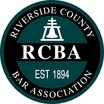 Are you a successor trustee? What happens when the settlor, or creator, of the trust dies? This process is called Trust Administration. Often, when clients come into my office, they assume that establishing a trust will take out all of the “work” required after their death. They could not be more wrong. Yes, having a trust is much to your benefit. However, whomever you appoint as your successor trustee needs to be prepared to get working after your death. There are six distinct steps in this process: (1) Notification; (2) Dealing with real property; (3) Collecting other assets; (4) Paying debts and taxes; (5) Accounting; (6) Distribution. Each step can be very involved and requires good record keeping. So, in choosing a successor trustee, keep in mind that the person must be able to handle a good deal of paperwork and financial responsibilities. Step One: Notification California Probate Code Section 16061.7 has several notification requirements. The successor trustee must notify all beneficiaries and heirs of the death of a settlor (or creator of the trust). The notification section is very specific and has different notification requirements for different situations. It is imperative that a successor trustee is aware of this requirement, as most do not realize their responsibility to act. Step Two: Dealing With Real Property Next, the successor trustee must deal with the real property owned by the settlor. If the trust was properly “funded”, then the real property should already be titled in the name of the settlor as trustee. So, at the settlor’s death, the successor trustee needs to record an Affidavit of Death of Trustee and Consent of Successor Trustee, along with a certified copy of the death certificate, against each real property held in the Living Trust. When it is recorded, it changes the title of the property from the the settlor who has died and into the names of the new trustee(s). If the trust was not properly funded, there may be an issue. However, not all hope is lost. There is an option for a Heggstad Petition, which is a request of the court to transfer real property to a Trust after death. This is not ideal, but it is an option. In addition to the above, there will be a few other forms need by the recorder’s office. Step Three: Collecting Other Assets Once the real property is handled, the next step is collecting all other assets (i.e.: bank accounts, investment accounts) and have the title to those assets transferred into the successor trustee’s name. Getting a Federal Tax Identification Number is needed to complete this step. The successor trustee should NOT use his or her own Social Security Number. Step Four: Paying Debts and Taxes After ascertaining all assets, the successor trustee then determines taxes and debts. To determine whether a federal estate tax return (Form 760) must be filed for the deceased settler, you will need to add up the total value of the decedent’s estate, including both trust assets and non-trust assets. If the total value of the estate is more than the exemption amount, then the successor trustee has nine months in which to file the Form 760. The basic exclusion amount for decedents dying after December 31, 2014 is $5,430,000.00. Even if the estate does not own estate and gift taxes, the successor trustee will be responsible for filing a final income tax document for the decedent. Please be aware that a trustee can be held personally liable for unpaid taxes. Step Five: Accounting The successor trustee must keep a detailed report of the trust assets, all money spent in winding up the decedent’s estate, all deposits into the trust and all disbursements from the trust. Some trust documents will waive this requirement; however, it is still a best practice to keep a record, to protect against any liability. Step Six: Distribution The final step is the distribution. This is a very important step in the process as well. The trust agreement will detail out how property is to be distributed. However, there may be some caveats to outright distribution. There could be creation of sub-trusts or on-going trusts. It would be best practice to get a court approval on a distribution if the trustee is at all concerned about liability. As you can see, trust administration can be confusing and anything but clear cut. If you need further information contact one our featured estate planning, trust & probate lawyers to schedule a consultation. |
IE Legal Hub
Local legal information, published by local Inland Empire lawyers. Are you a local attorney?
Archives
July 2023
Categories
All
|

 RSS Feed
RSS Feed




